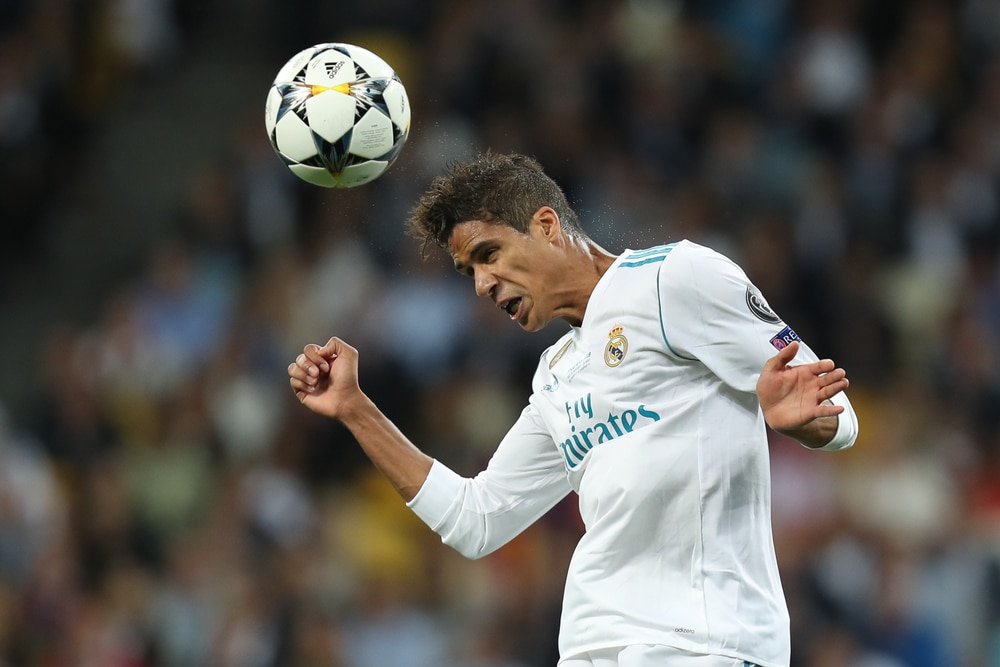Manchester United defender Raphael Varane says a lack of understanding around ‘micro-concussions’ means he has damaged his long-term health during the course of his football career.
Varane claims he was unaware of the issue until this season but believes repeated head traumas caused by clashes with opposing players and heading the ball will have an effect when he retires.
Read our other sports news stories here:
Guardiola: Rice transfer was ‘good decision’
Royal Challengers Bengaluru v Lucknow Super Giants: Preview and prediction
The former France international cites the 2014 World Cup quarter-final against Nigeria as one example of a game he finished on “autopilot” while he said he also played with a head injury for Real Madrid against Manchester City in the 2019-20 season.
In an interview with L’Equipe, Varane said: “The first time I heard about [micro-concussions] was this season when specialists came in to talk to us about it. Often, as a player, we don’t understand and we don’t even think about doing a test.
“Earlier this season, I headed the ball repeatedly during a match for Man United and felt abnormally tired in the following days, as well as having some eye fatigue.
“I reported it to the staff who strongly recommended that I don’t play, and I took a test which meant that I missed the next match.”
La une du journal L’Équipe du mardi 2 avril
Lire l’édition > HTTPS://T.CO/LIRBJDA0UW PIC.TWITTER.COM/QKVLXWA0ST
— L’ÉQUIPE (@lequipe) APRIL 2, 2024
Although attitudes towards concussions in football is slowly changing – permanent concussion substitutions have been given the go-ahead by rule makers IFAB – Varane believes the macho culture of men’s football means it is perceived as weak to pull out of a game due to tiredness.
He added: “As footballers playing at the highest level, we are used to pain, we are a bit like soldiers, tough guys, symbols of physical strength, but these symptoms are almost invisible.
“If your leg hurts and you limp, everyone sees it. But with head injuries, it immediately feels weak to say that you are tired, that you have migraines or eye fatigue. So, we tell ourselves that it will pass.
“Even if it does not cause immediate trauma, we know that in the long term, repeated shocks are likely to have harmful effects. I don’t know if I will live to be 100, but I know that I have damaged my body.”



